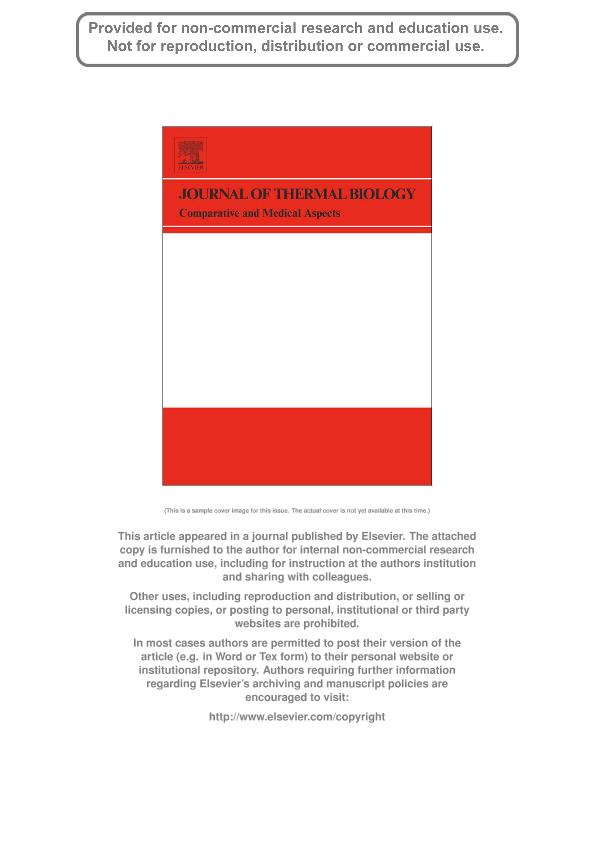Artículo
Effects on the thermoregulatory efficiency of two native lizards as a consequence of the habitat modification by the introduction of the exotic tree Acacia longifolia
Fecha de publicación:
01/2013
Editorial:
Pergamon-Elsevier Science Ltd.
Revista:
Journal of Thermal Biology
ISSN:
0306-4565
Idioma:
Inglés
Tipo de recurso:
Artículo publicado
Clasificación temática:
Resumen
Habitat modification alters several aspects of the original fauna, among them the opportunity for thermoregulation. Here, we studied the thermal biology of sympatric populations of two lizard species (Liolaemus multimaculatus and Liolaemus wiegmannii) in two different situations; a grassland without trees (natural habitat) and in a grassland plus the exotic tree Acacia longifolia (modified habitat), aiming to assess whether the structural alteration of native Pampean coastal grasslands of Argentina affects the thermal biology of these lizards. Field body temperatures, laboratory preferred temperatures, microenvironmental temperatures, operative temperatures, thermoregulatory efficiency and spatial distribution of each species were analyzed in both habitats. Environmental operative temperature was 0.64 1C lower in the modified habitat (Te¼38.39 1C) than in the natural (Te¼39.03 1C). Thermoregulatory efficiency (E) of L. wiegmannii was lower in modified sites (E¼0.58) than in natural sites (E¼0.70). This difference may be because this lizard occupied shaded microhabitats under acacias, with suboptimal thermal features. In contrast, L. multimaculatus in the modified habitat restricted its activity to open microenvironments that retained a similar structure to that of the native habitat, while maintaining high thermoregulatory efficiency in both habitat types (Emodified¼0.92; Enatural¼0.96). Although these two lizard species are phylogenetically close, they respond differently to human-induced changes in their thermal environments. The introduction of A. longifolia into coastal grasslands for L. wiegmannii in particular, this introduction converts its native habitat into a suboptimal thermal environment
Palabras clave:
Thermoregulation
,
Exotic Plants
,
Habitat Modification
,
Lizard
,
Liolaemus
Archivos asociados
Licencia
Identificadores
Colecciones
Articulos(CCT - MAR DEL PLATA)
Articulos de CTRO.CIENTIFICO TECNOL.CONICET - MAR DEL PLATA
Articulos de CTRO.CIENTIFICO TECNOL.CONICET - MAR DEL PLATA
Citación
Stellatelli, Oscar Aníbal; Vega, Laura Estela; Block, Carolina; Cruz, Felix Benjamin; Effects on the thermoregulatory efficiency of two native lizards as a consequence of the habitat modification by the introduction of the exotic tree Acacia longifolia; Pergamon-Elsevier Science Ltd.; Journal of Thermal Biology; 38; 3; 1-2013; 135-142
Compartir
Altmétricas




